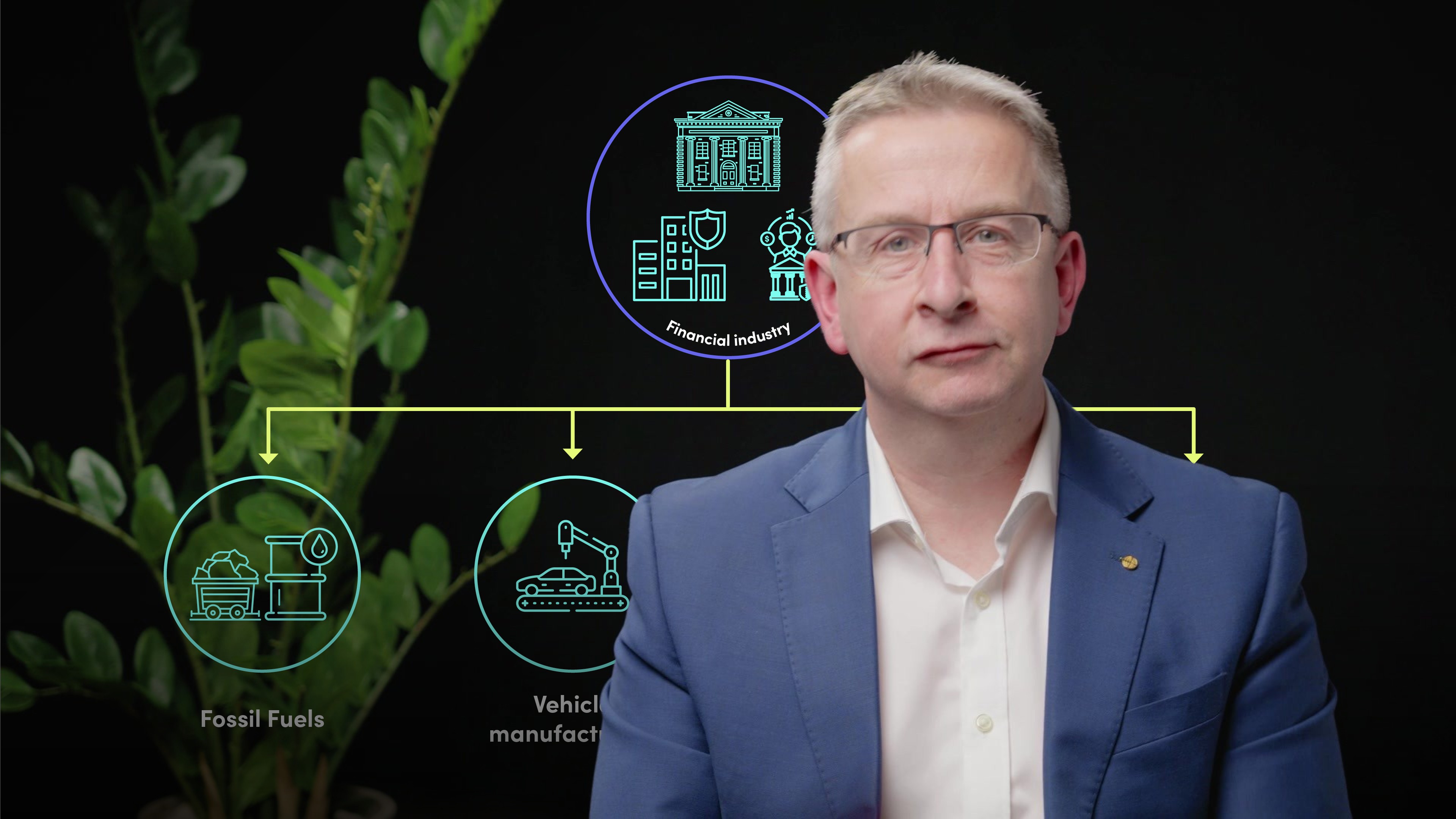
Climate Risk Management II

Simon Thompson
Managing Director and Author
In this second video on climate risk management, Simon Thompson explains the concept of stranded asset risk and its impact on financial markets. He also covers the challenges faced in quantifying climate-related risks and how scenario analysis and stress testing can be used to assess the resilience of financial institutions.
In this second video on climate risk management, Simon Thompson explains the concept of stranded asset risk and its impact on financial markets. He also covers the challenges faced in quantifying climate-related risks and how scenario analysis and stress testing can be used to assess the resilience of financial institutions.

Climate Risk Management II
7 mins
Key learning objectives:
Understand the concept of stranded asset risk and its potential impact on financial markets
Understand the challenge of understanding and quantifying climate-related risks
Outline how scenario analysis and stress testing can be used for assessing the resilience of financial institutions and mitigating climate-related risks
Overview:
Climate change presents substantial risks to financial markets, urging thorough risk assessments. The Task Force on Climate-related Financial Disclosures (TCFD) offers tools to tackle these risks. Stranded assets, like fossil fuels devalued by a swift shift to low-carbon alternatives, could destabilise financial sectors. Central banks, regulators, and the TCFD endorse climate risk management, encouraging organisations to employ scenario analysis and stress testing for resilience. The move to a low-carbon economy simultaneously reduces physical risks while amplifying transition risks, necessitating effective climate risk management in daily operations.
What is stranded asset risk and what does it mean for the financial industry?
Stranded asset risk refers to the significant or total loss of economic value an asset suffers due to an abrupt transition to a low-carbon world. This risk is particularly significant for fossil fuel assets which may become unviable due to global warming limitations outlined in the Paris Agreement. The potential losses from stranded assets are so extensive that they pose a systemic threat to financial stability, affecting financial firms, retail investors, and various sectors dependent on fossil fuels.
Why is it difficult to understand and quantify climate-related risks?
Understanding and quantifying climate-related risks is challenging due to their complex and interrelated nature. Variables such as the degree of global warming, the speed of transition, changing regulations, and potential legal liabilities contribute to this complexity. Additionally, these variables are interconnected, resulting in intricate feedback loops. Scenario analysis and stress testing are recommended to help understand the impact of different climate change assumptions.
How can scenario analysis and stress testing help quantify the nature of climate risks?
Scenario analysis and stress testing are vital tools in quantifying climate risks. Scenario analysis allows organisations to understand the potential impacts of various climate change assumptions on their operations. By analysing different global warming scenarios (extreme, intermediate, best-case), they can assess the resilience of their financial portfolios and identify vulnerabilities. Stress testing, often using scenarios from the Network for Greening the Financial System (NGFS), assesses the resilience of financial institutions' balance sheets to significant shocks. This can reveal areas of risk and prompt proactive steps for long-term stability and climate risk alignment.

Simon Thompson
There are no available Videos from "Simon Thompson"

